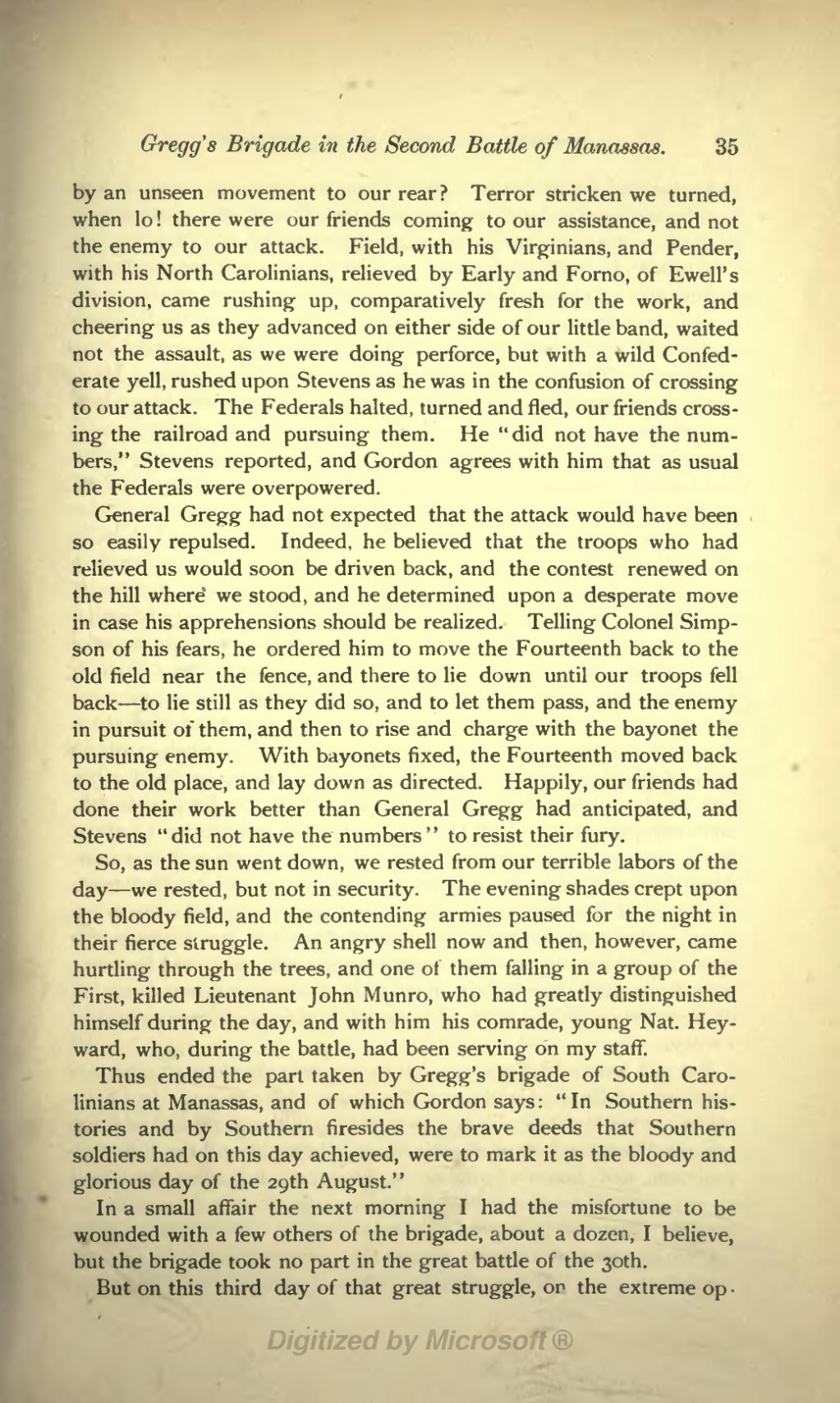Gregg's Brigade in the Second Battle of Manassas. 35
by an unseen movement to our rear ? Terror stricken we turned, when lo ! there were our friends coming to our assistance, and not the enemy to our attack. Field, with his Virginians, and Fender, with his North Carolinians, relieved by Early and Forno, of EwelFs division, came rushing up, comparatively fresh for the work, and cheering us as they advanced on either side of our little band, waited not the assault, as we were doing perforce, but with a wild Confed- erate yell, rushed upon Stevens as he was in the confusion of crossing to our attack. The Federals halted, turned and fled, our friends cross- ing the railroad and pursuing them. He "did not have the num- bers," Stevens reported, and Gordon agrees with him that as usual the Federals were overpowered.
General Gregg had not expected that the attack would have been so easily repulsed. Indeed, he believed that the troops who had relieved us would soon be driven back, and the contest renewed on the hill where* we stood, and he determined upon a desperate move in case his apprehensions should be realized. Telling Colonel Simp- son of his fears, he ordered him to move the Fourteenth back to the old field near the fence, and there to lie down until our troops fell back to lie still as they did so, and to let them pass, and the enemy in pursuit of them, and then to rise and charge with the bayonet the pursuing enemy. With bayonets fixed, the Fourteenth moved back to the old place, and lay down as directed. Happily, our friends had done their work better than General Gregg had anticipated, and Stevens "did not have the numbers" to resist their fury.
So, as the sun went down, we rested from our terrible labors of the day we rested, but not in security. The evening shades crept upon the bloody field, and the contending armies paused for the night in their fierce struggle. An angry shell now and then, however, came hurtling through the trees, and one of them falling in a group of the First, killed Lieutenant John Munro, who had greatly distinguished himself during the day, and with him his comrade, young Nat. Hey- ward, who, during the battle, had been serving on my staff.
Thus ended the part taken by Gregg's brigade of South Caro- linians at Manassas, and of which Gordon says: "In Southern his- tories and by Southern firesides the brave deeds that Southern soldiers had on this day achieved, were to mark it as the bloody and glorious day of the 2gth August."
In a small affair the next morning I had the misfortune to be wounded with a few others of the brigade, about a dozen, I believe, but the brigade took no part in the great battle of the 3Oth.
But on this third day of that great struggle, on the extreme op
